Unveiling the Secrets 7 Essential Ingredients for Hair Growth
Unveiling the Secrets 7 Essential Ingredients for Hair Growth
Are you tired of endless bad hair days, longing for that luscious mane you’ve always dreamt of? Well, look no further because we have the secret formula to unlock your hair’s greatest potential! In this blog post, we’re unveiling not one, not two, but seven essential ingredients for maximizing hair growth and achieving head-turning luxurious locks. Get ready to dive into a world of nourishing treatments, scientifically-backed tips, and expert advice. Say goodbye to thinning strands and hello to a bountiful crown – it’s time to unveil the secrets behind stunningly beautiful hair!
Introduction: Understanding Hair Growth and Common Issues
Hair is a defining feature of our appearance, and we all desire thick, lustrous locks that enhance our beauty. However, achieving healthy hair can sometimes feel like an endless struggle. From breakage and frizz to hair loss and slow growth, numerous issues can hinder our quest for picture-perfect tresses.
To understand how to tackle these common hair problems effectively, it is crucial first to comprehend the basics of hair growth. Our hair goes through three distinct phases – anagen (growth phase), catagen (transition phase), and telogen (resting phase). During the anagen phase, new hairs grow from the follicles on our scalp at a rate of approximately half an inch per month. The length of this phase varies from person to person and determines how long your hair can potentially grow. The catagen phase only lasts for a few weeks as the hair stops growing and prepares to shed. During the telogen phase, old hairs fall out, making room for new hairs in the next anagen phase.
While this natural cycle ensures healthy hair growth in most cases, certain factors can disrupt it and lead to various issues. Some of these include genetics, lifestyle choices such as diet and stress levels, usage of harsh chemicals or heat tools on your hair regularly, hormonal imbalances, medical conditions like hypothyroidism or alopecia areata, and even age.
One significant factor that affects our hair’s health is proper nutrition. Just like any other part of our body needs nutrients for optimal functioning; so does our mane. Proteins are essential building blocks required for strong keratin formation – the key structural component in our hair strands. B vitamins aid in maintaining healthy follicles while iron helps transport oxygen to your scalp necessary for cell regeneration. Inadequate intake of these vital nutrients can lead to weak and brittle strands prone to breakage.
Another critical aspect often overlooked when it comes to hair health is managing stress levels. Chronic stress can lead to increased production of cortisol, a hormone that interferes with the normal hair growth cycle and may result in excessive shedding or even hair loss.
In the upcoming sections, we will delve deeper into vital ingredients that can promote healthy hair growth by targeting issues such as nutritional deficiencies and stress management. Incorporating these essential elements into your routine will lay a solid foundation for achieving beautiful, strong, and luscious locks.
The Top 7 Essential Ingredients for Hair Growth:
Are you struggling with slow hair growth or frequent hair fall? Looking for a way to achieve luscious locks without breaking the bank? Look no further – we have compiled a list of the top 7 essential ingredients for hair growth that are guaranteed to effectively nourish and stimulate your strands!
1. Biotin – Also known as Vitamin H, biotin is a water-soluble vitamin that plays a vital role in promoting healthy hair growth. It helps produce amino acids in the body which are essential for building keratin, the protein that makes up our hair. Lack of biotin can lead to weak and brittle strands, causing breakage and stunted growth.
2. Fish oil – Rich in omega-3 fatty acids, fish oil helps promote scalp health by increasing blood circulation and reducing inflammation. It also contains antioxidants that protect the scalp from damage caused by free radicals.
3. Castor oil – Another potent ingredient for improving hair health, castor oil is rich in ricinoleic acid which has antibacterial and anti-inflammatory properties that help maintain a healthy scalp. This helps prevent issues such as dandruff and fungal infections which can impede hair growth.
4. Vitamins A & E – These vitamins work hand in hand to promote healthy hair follicles and prevent dryness which can cause breakage. Vitamin A stimulates the production of sebum, an oily substance that moisturizes the scalp while Vitamin E repairs damaged hair follicles.
5. Vitamin C– Known for its immune-boosting properties, Vitamin C also promotes collagen synthesis which is essential for strong, resilient strands of hair.
6. Zinc – This mineral is crucial for maintaining a healthy scalp as it aids in cell division, tissue growth, and repair— all fundamental processes involved in growing thick and healthy locks.
7. Keratin – As mentioned earlier, keratin is vital for strong and nourished strands of hair so incorporating this protein into your hair care regime is crucial. You can opt for keratin supplements or look for hair products enriched with keratin to replenish and repair damaged strands.
Incorporating these essential ingredients into your diet and hair care routine will undoubtedly help you achieve the healthy, luscious locks you desire. Remember to always consult a healthcare professional before adding any new supplement to your diet and be patient as it takes time for the effects of these ingredients to show on your hair. With consistency and proper care, you will no longer struggle with slow hair growth or weak strands – just sit back, relax, and watch your mane thrive!
1. Biotin
Biotin, also known as vitamin B7 or vitamin H, is an essential nutrient for hair growth and overall health. It is a water-soluble vitamin that plays a crucial role in the metabolism of fats, carbohydrates, and proteins. In this section, we will uncover the secrets of how biotin can help promote healthy hair growth.
Firstly, let’s understand the importance of biotin for our body. As mentioned earlier, biotin helps in metabolizing food into energy. This process promotes cell growth and repair throughout our body, including the cells that make up our hair follicles. Therefore, adequate levels of biotin are necessary to maintain healthy hair and prevent hair loss.
Furthermore, biotin plays a vital role in producing keratin – a protein that makes up our hair strands. Keratin gives our hair its strength and elasticity, making it less prone to breakage and damage. With enough biotin intake, our hair becomes stronger from roots to ends.
Moreover, studies have shown that biotin deficiency can lead to various hair problems such as thinning or brittle hair and even premature graying. Therefore, incorporating foods rich in biotin or taking supplements may help improve these conditions.
Some natural sources of biotin include eggs (specifically egg yolks), nuts (especially almonds), whole grains like wheat germ and oats, some fruits like bananas and avocadoes, and vegetables like spinach and sweet potatoes. To get enough amounts of this essential nutrient through your daily diet, you can also consider adding nutritional yeast or organ meats like liver to your meals.
In addition to promoting healthy hair growth, biotin has several other benefits for our body. Some evidence suggests that it may help manage blood sugar levels, maintain proper brain function, detoxify the liver, and strengthen nails. Hence, it is not only good for your mane but also supports overall well-being.
While there are no known side effects of excess biotin intake, it is essential to consult a healthcare professional before starting any supplements. Sometimes, too much biotin can interfere with medical tests and cause inaccurate results.
Biotin plays a crucial role in maintaining healthy hair growth and overall wellness. It helps produce keratin and provides energy for cell growth and repair. Make sure to incorporate biotin-rich foods into your diet or consider taking supplements if needed. However, always seek advice from a medical professional to ensure the appropriate dosage for you.
2. Vitamin E
Vitamin E, also known as tocopherol, is an essential nutrient with powerful antioxidant properties. It plays a crucial role in maintaining healthy hair growth and overall hair health. In this section, we will delve deeper into the benefits of vitamin E for your tresses.
Promotes Scalp Health:
Vitamin E has anti-inflammatory properties that help to maintain a healthy scalp. A healthy scalp is vital for promoting hair growth as it provides the necessary nutrients and oxygen to the hair follicles. Vitamin E also helps in reducing oxidative stress, which can lead to scalp issues like dandruff, eczema, and psoriasis.
Improves Blood Circulation:
Proper blood circulation is essential for delivering nutrients and oxygen to the hair follicles. Vitamin E helps in widening the blood vessels, thus improving blood flow to the scalp. This promotes cell repair and nourishment of hair follicles, leading to healthier and stronger strands.
Nourishes Hair Strands:
The antioxidant properties of vitamin E protect our cells from damage caused by free radicals produced due to pollution, harsh chemical products used on our hair or UV rays from sun exposure. These free radicals can cause damage to our hair cuticles leading to dryness, breakage and split ends. Vitamin E protects our strands by neutralizing these free radicals and keeping them strong.
Strengthens Hair Follicles:
Hair strength begins at the roots- The cells that form around each follicle provide support for each strand of growing hair. Vitamin E aids in boosting collagen production around these cells giving them better elasticity resulting in fewer broken or damaged hairs.
Prevents Premature Graying:
The premature graying of beautiful locks is a concern among many individuals today. While genetics play a significant role in this phenomenon, vitamin E can also help prevent premature graying. Its antioxidant properties help prevent oxidative stress on the scalp’s melanin-producing cells responsible for giving color pigment to our hair.
Boosts Hair Growth:
Vitamin E supplementation has been shown to promote healthy hair growth. This is because it helps in increasing blood circulation, provides nourishment to the scalp, and strengthens hair follicles. A healthy scalp leads to healthier hair strands which can grow longer and stronger over time.
Incorporating vitamin E into your daily routine can provide numerous benefits for your hair. From promoting scalp health, improving blood circulation, strengthening hair follicles, and preventing premature graying to boosting overall hair growth- this essential nutrient is a must-have ingredient for maintaining luscious locks.
3. Collagen
Collagen is a protein that has gained popularity in recent years for its various health benefits, especially in the realm of hair growth. This essential ingredient plays a crucial role in promoting strong and healthy hair by nourishing the scalp and stimulating hair follicle growth.
First and foremost, collagen is responsible for providing structure to our body’s tissues, including the skin, bones, muscles, and hair. It is the most abundant protein present in our bodies. As we age, our natural collagen production decreases, leading to visible signs of aging such as thinning hair and wrinkles. That’s where supplementing with collagen comes into play.
Collagen supplementation has been found to improve overall hair health by increasing the diameter of individual hairs and stimulating their growth. This is due to the amino acids present in collagen which are necessary building blocks for keratin – a type of protein that makes up our nails and hair.
Furthermore, collagen works wonders for maintaining scalp health. It contains high levels of glycine and proline – two amino acids involved in producing collagen fibers that make up connective tissue. These amino acids are also known to promote healthy cell turnover on the scalp while helping to reduce inflammation that may hinder optimal hair growth.
Apart from its direct impact on improving hair quality at a cellular level, collagen also offers indirect benefits through its antioxidant properties. Antioxidants help protect against free radical damage which can lead to premature aging and weak strands prone to breakage.
It’s worth noting that not all types of collagen are created equal when it comes to benefiting your tresses. Type I or III collagen is primarily beneficial for promoting strong and healthy hair growth since it contains large amounts of amino acids like proline and glycine needed by keratin-producing cells located within your scalp.
Collagen supplements come in various forms – ranging from powders to capsules – making it easy to incorporate them into your daily routine. They are typically derived from animal sources like fish, bovine, or chicken. However, if you’re a vegetarian or vegan, look for plant-based collagen alternatives that are derived from ingredients like algae or seaweed.
Collagen is an essential ingredient for promoting healthy hair growth. Its ability to nourish the scalp and stimulate hair follicles makes it a valuable addition to any hair care routine. So why wait? Start incorporating this powerhouse protein into your daily regime and unveil the secret to luscious locks!
4. Iron
Iron is an essential mineral that plays a crucial role in the growth and maintenance of our hair. It is responsible for carrying oxygen to our hair follicles, which helps promote healthy hair growth. In this section, we will delve deeper into the importance of iron for our locks and how we can ensure we are getting enough of it.
One of the major functions of iron is its role in producing hemoglobin, a protein found in red blood cells that carries oxygen from the lungs to every cell in our body. This includes the cells in our scalp and hair follicles. Without sufficient levels of iron, the cells may not be able to receive the necessary amount of oxygen, resulting in weak and brittle strands that are prone to breakage.
Furthermore, iron also aids in creating new red blood cells, which are essential for maintaining a healthy immune system. When our immune system is not functioning properly due to a lack of nutrients like iron, it can lead to conditions such as alopecia or pattern baldness.
It’s important to note that while iron deficiency is commonly associated with vegetarians or vegans who may not consume enough plant-based sources of iron, it can also affect individuals following other diets if they do not have a well-rounded intake. Other factors such as menstruation or pregnancy can also increase one’s risk for iron deficiency.
So how much iron do we need for optimal hair health? The recommended daily allowance (RDA) for adult men over 19 years old is 8 mg per day and 18 mg per day for adult women between 19-50 years old. However, pregnant women may require more since they have an increased demand for blood volume during pregnancy.
To ensure you are getting enough iron in your diet, incorporating foods rich in this mineral is key. Red meat such as beef and pork are excellent sources of heme-iron (the type that comes from animal sources), while leafy greens like spinach and kale provide non-heme iron. Other plant-based sources include legumes, dried fruits, and fortified grains.
It’s worth noting that consuming vitamin C-rich foods along with iron-rich foods can enhance iron absorption in our bodies. So be sure to pair your beans or lentils with a side of fresh fruits like oranges or strawberries.
Iron is an essential ingredient for hair growth as it helps transport oxygen to our hair follicles and supports a healthy immune system. Be mindful of your intake of this mineral and incorporate a diverse range of sources to ensure your locks are receiving the nourishment they need for optimal growth and strength.
5. Omega-3 Fatty Acids
Omega-3 fatty acids are a type of unsaturated fat that are essential for the growth and maintenance of healthy hair. These powerful nutrients are also known as polyunsaturated fatty acids and can be found in foods such as fish, nuts, seeds, and plant-based oils.
There are three types of omega-3 fatty acids: alpha-linolenic acid (ALA), eicosapentaenoic acid (EPA), and docosahexaenoic acid (DHA). ALA is mainly found in plant-based sources like flaxseeds, chia seeds, and walnuts. EPA and DHA, on the other hand, are most commonly found in cold-water fish like salmon, tuna, mackerel, and sardines. These two types of omega-3s have been shown to have the most significant benefits for hair growth.
So how do omega-3 fatty acids contribute to promoting healthy hair? One key way is by nourishing the scalp. The scalp is where the hair follicles reside and is responsible for providing vital nutrients to support hair growth. Omega-3s help to keep the scalp hydrated by maintaining its natural oil production. This can prevent dryness and flakiness which can lead to dandruff or other scalp conditions that may inhibit hair growth.
In addition to keeping the scalp moisturized, omega-3s also have anti-inflammatory properties. Inflammation has been linked to various forms of hair loss such as alopecia areata or even male pattern baldness. By reducing inflammation throughout the body, including the scalp area, omega-3 fatty acids can potentially prevent or slow down these types of hair loss.
Furthermore, research has shown that DHA specifically helps with improving blood circulation in the body. This applies to blood flow in the scalp as well. When blood circulates better in this area it means that more oxygen and important nutrients get delivered to the hair follicles. This can lead to stronger, healthier hair growth.
Another way that omega-3 fatty acids may help with hair growth is by balancing hormones. Hormonal imbalances have been linked to various forms of hair loss, including female pattern baldness and male androgenic alopecia. Omega-3s can help regulate hormone production, which in turn may reduce the risk of these types of hair loss.
In addition to being consumed through food sources, omega-3 fatty acids are also available in supplement form. However, it’s always best to consult with a healthcare professional before starting any new supplements.
Incorporating foods rich in omega-3 fatty acids into your diet can greatly benefit the health of your hair. From nourishing the scalp to reducing inflammation and balancing hormones, these essential nutrients play a crucial role in promoting strong and healthy locks. So don’t forget to add some salmon or chia seeds into your next meal for luscious locks!
6. Zinc
Zinc is an essential mineral that plays a crucial role in maintaining the health and growth of our hair. It is often overlooked when it comes to hair care, but it is actually one of the key ingredients for promoting strong and lustrous locks.
The average human body contains approximately 2-3 grams of zinc, making it one of the most abundant trace elements. It can be found in various food sources such as red meat, poultry, seafood, dairy products, nuts, and whole grains. However, due to factors such as poor diet and inadequate absorption by the body, many people do not consume enough zinc through their diet alone.
So why is zinc important for hair growth? The answer lies in its numerous roles in the body. Zinc helps to regulate hormonal balance which directly affects hair growth. It also aids in the production of keratin – a protein that makes up our hair strands – giving them strength and resilience.
In addition to this, studies have shown that zinc has anti-inflammatory properties which help combat conditions like dandruff and scalp irritation. A healthy scalp is necessary for optimal hair growth as it provides a conducive environment for follicles to grow.
Furthermore, zinc plays a critical role in DNA synthesis and cell division – both processes are responsible for creating new cells including those that make up our hair follicles. This means that adequate levels of zinc are required for the production of new strands and ensuring they grow at a healthy rate.
Not getting enough zinc can result in thinning or even loss of hair. Individuals with low levels have reported experiencing symptoms such as increased shedding or slow-growing tresses. In extreme cases, severe deficiency can lead to alopecia – an autoimmune disorder characterized by sudden patchy baldness.
Fortunately, incorporating more zinc into your routine doesn’t have to be challenging or expensive. There are many supplements available on the market specifically designed for supporting healthy hair growth containing appropriate doses of this essential mineral. You can also try incorporating zinc-rich foods into your diet or switching to fortified food products.
To conclude, zinc is a vital ingredient for maintaining healthy hair growth. Its various roles in the body, ranging from hormone regulation to cell production make it crucial for strong and resilient locks. By ensuring you consume adequate levels of this mineral through your diet or supplements, you’ll be one step closer to achieving your hair goals.
7. Protein
Protein is an essential nutrient for maintaining strong and healthy hair. Hair is made up of a protein called keratin, which is produced in the hair follicles. This protein forms the structure of each strand of hair and helps to keep it strong and elastic.
When we lack adequate amounts of protein in our diet, our body prioritizes its use for vital functions such as cell repair and metabolism, leaving very little leftover for non-essential functions like hair growth. This can lead to weak, brittle, and slow-growing hair.
Including enough protein in your diet can help prevent hair loss, promote faster growth, and improve overall hair health. The recommended daily allowance (RDA) for protein intake is 0.8 grams per kilogram of body weight for adults. However, this may vary depending on factors such as age, gender, and level of physical activity.
One way to ensure you are getting enough protein for optimal hair growth is by incorporating high-protein foods into your meals. Some excellent sources of protein include lean meats like chicken or turkey breast, fish such as tuna or salmon, eggs, nuts and seeds like almonds or chia seeds, dairy products like cheese and Greek yogurt, legumes such as chickpeas or lentils, tofu and other soy-based products.
In addition to consuming enough dietary protein naturally through food sources in your diet plan for healthy eating habits that benefit your overall well-being ultimately impact better-looking skin conditions including clearing acne here’s what else you can do:
1. Take Biotin Supplements: Biotin (also known as vitamin B7) is a water-soluble vitamin that plays a crucial role in the production of keratin – the main structural component of hair. Taking biotin supplements can help support stronger strands while promoting faster growth.
2. Use Protein-based Hair Products: Incorporating protein-based products into your regular hair care routine can also help improve hair health. Look for shampoos, conditioners, and treatments that contain ingredients like keratin, collagen, or amino acids.
3. Avoid Excessive Heat Styling: The high heat from styling tools like curling irons and straighteners can strip the hair of its natural protein, leading to damage and breakage. Minimize the use of these tools or use them on a lower temperature setting to prevent unnecessary damage.
Protein is an essential ingredient for hair growth as it provides the necessary building blocks for strong and healthy hair strands. By incorporating enough protein into your diet and using good quality protein-based hair products while minimizing heat styling, you can promote faster growth and maintain luscious locks.
Benefits of Each Ingredient and How They Promote Hair Growth
1. Benefits of Each Ingredient and How They Promote Hair Growth
In the previous sections, we have discussed some of the essential ingredients for hair growth such as biotin, vitamin E, and protein. But what exactly makes these ingredients effective in promoting hair growth? In this section, we will dive deeper into the specific benefits of each ingredient and how they work together to promote healthy hair growth.
1. Biotin
Biotin is a water-soluble vitamin also known as vitamin H or B7. It plays a crucial role in maintaining the health of our hair, skin, and nails. As an essential nutrient for cell growth and metabolism, biotin helps convert food into energy that is vital for hair follicles to produce new hair strands.
One prominent effect of biotin on our hair is its ability to increase keratin production. Keratin is a fibrous protein that makes up our hair structure. With sufficient amounts of biotin in our body, hair becomes stronger and less prone to breakage.
Moreover, research has shown that biotin can improve the production of fatty acids which are key components in nourishing scalp health. A healthy scalp provides a strong foundation for new hairs to grow and thrive.
2. Vitamin E
Vitamin E is an antioxidant that helps fight off free radicals which cause damage to our cells including those responsible for producing healthy strands of hair. By neutralizing these harmful molecules, vitamin E protects our scalp from oxidative stress which could hinder proper circulation – an important factor for supplying nutrients to the hair follicles.
Aside from promoting overall scalp health, studies have shown that vitamin E can also stimulate blood flow which increases follicle activity resulting in better absorption of nutrients and faster regrowth rate.
3. Vitamin D3
Vitamin D3 is not only important for bone health but it also plays a significant role in regulating keratinocyte proliferation – the process of producing new hair strands. By promoting the generation of new cells in hair follicles, vitamin D3 helps thicken and strengthen existing hairs.
Additionally, studies have shown that low levels of vitamin D3 are associated with hair loss conditions such as alopecia areata. Therefore, maintaining an adequate level of this nutrient is crucial for healthy hair growth.
4. Protein
Our hair is made up mostly of a protein called keratin. Without sufficient protein intake, our body may not have enough resources to produce strong and healthy strands of hair. Additionally, protein also plays a role in repairing damaged tissues which could help strengthen weak and brittle hair.
Protein-rich foods like eggs, fish, and lean meats should be incorporated into your diet to ensure the necessary building blocks for healthy and lustrous locks.
Each ingredient mentioned – biotin, vitamin E, vitamin D3, and protein – plays unique roles in promoting hair growth. From providing essential nutrients to protecting against free radicals and stimulating blood flow to the scalp for a faster regrowth rate – these ingredients work together to maintain
Natural Sources of These Ingredients and Their Effects on Hair Health
When it comes to hair growth and overall hair health, the role of natural ingredients cannot be underestimated. These simple yet powerful elements have been used for centuries to promote strong, luscious locks. In this section, we will explore some of the most potent natural sources of ingredients that are essential for promoting healthy hair growth.
1. Coconut oil: This versatile oil is a staple in many hair care routines due to its various benefits for hair health. It is rich in fatty acids, vitamins, and minerals that nourish the scalp and help maintain moisture levels. The lauric acid present in coconut oil has antibacterial properties that can help prevent scalp infections and dandruff. Regular use of coconut oil can also strengthen hair follicles and reduce breakage.
2. Aloe vera: The gel extracted from aloe vera leaves is known to have numerous benefits for both skin and hair health. It contains enzymes that stimulate hair growth by removing dead skin cells from the scalp and unclogging hair follicles. The amino acids present in aloe vera also condition and moisturize the hair, leaving it soft and shiny.
3. Rosemary: This fragrant herb not only adds flavor to meals but also has incredible benefits for our tresses. It contains antioxidants that stimulate blood circulation in the scalp, promoting better nutrient absorption by the hair follicles. Additionally, rosemary has anti-inflammatory properties that can soothe an irritated scalp, making it an ideal ingredient for those with conditions like dandruff or eczema.
4. Eggs: While eggs are commonly known as a protein-rich food source, they also contain biotin – a B vitamin essential for healthy-looking hair. Biotin deficiency is linked to brittle nails and thinning of the hair shafts; therefore incorporating eggs into your diet or using them as a DIY mask on your tresses can promote stronger strands.
5. Essential Oils: Essential oils are concentrated extracts of plants that have been used for medicinal and beauty purposes for centuries. Some of the best ones for hair growth include peppermint, lavender, and tea tree oil. Peppermint oil has a cooling effect on the scalp, which can help soothe itchy or inflamed skin. Lavender oil contains antimicrobial properties that can combat scalp infections, while tea tree oil is known for its ability to unclog hair follicles and promote hair growth.
Incorporating natural ingredients like coconut oil, aloe vera, rosemary, eggs, and essential oils into your hair care routine can do wonders for your tresses. These powerful sources contain vital nutrients that nourish the scalp and strengthen the hair from within. Incorporating them in their purest form or in combination with other natural ingredients can result in healthy, lustrous locks.
Don’t forget to give us a follow on Facebook!


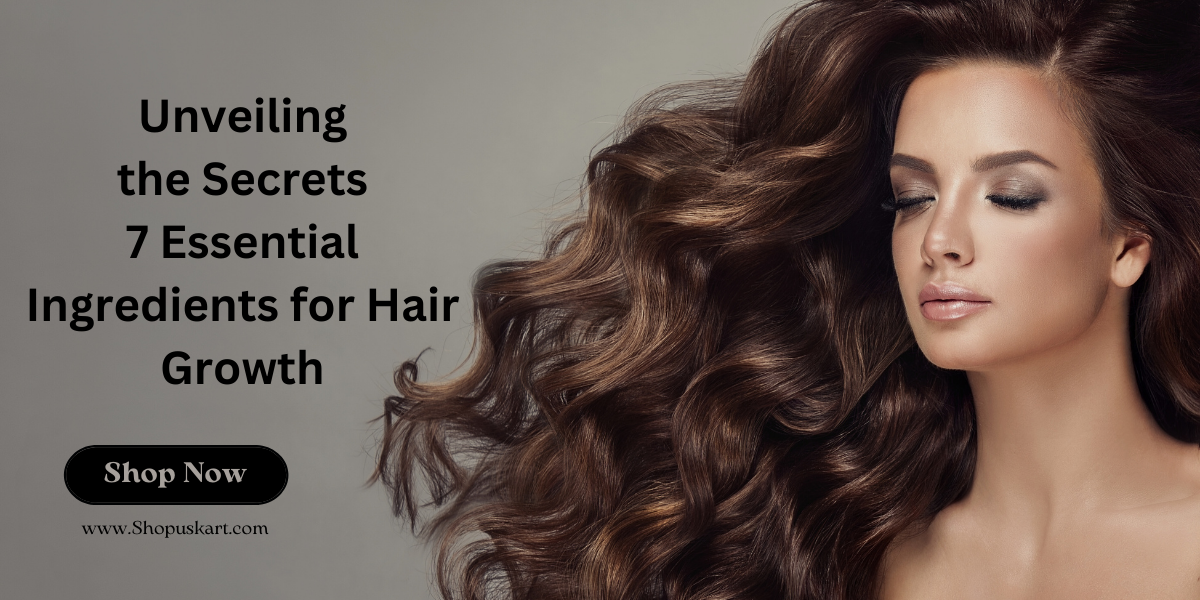
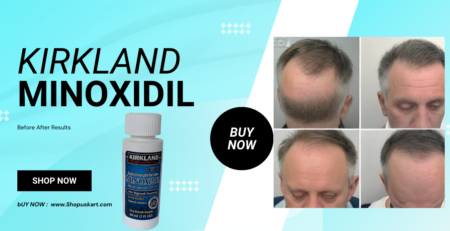


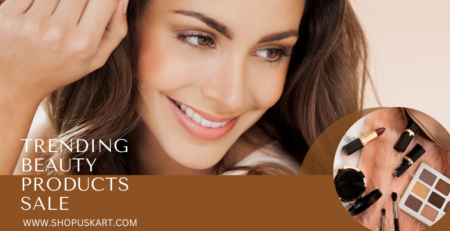
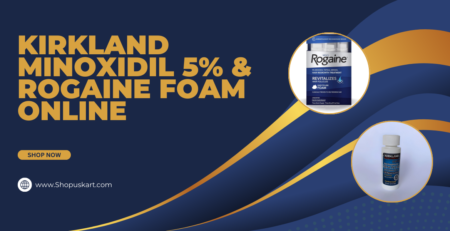
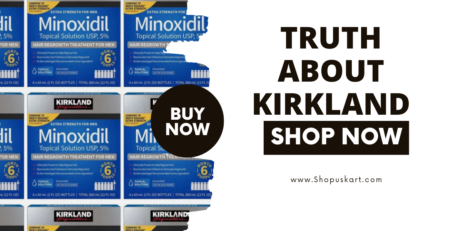
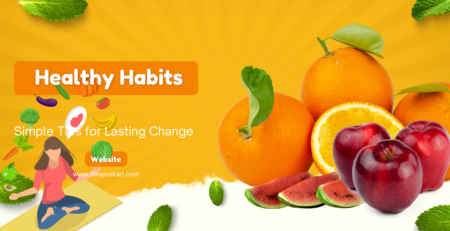

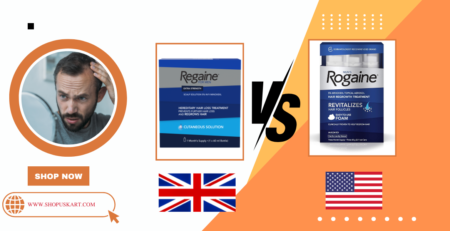
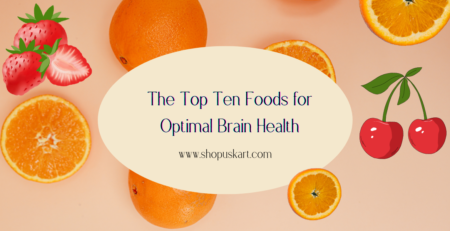
Leave a Reply